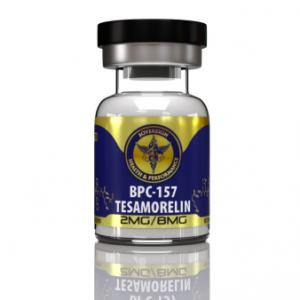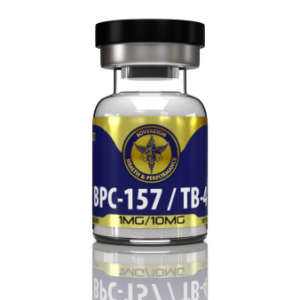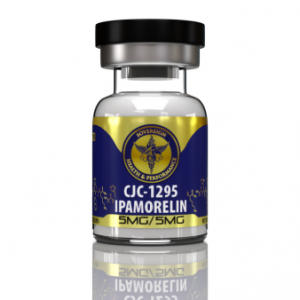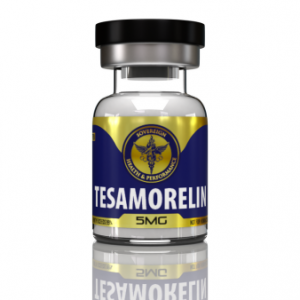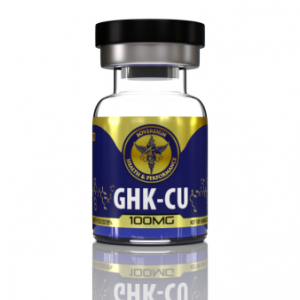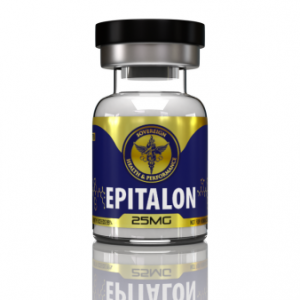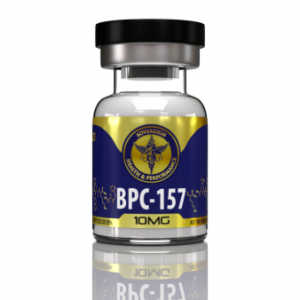Why is it that The Older You Get, The Slower You Heal; and What Can Be Done About It?
Executive Summary
As individuals age, their ability to heal declines due to several biological factors, including reduced cellular regeneration, a weakened immune system, and diminished blood circulation. Understanding these changes provides insight into why older people heal more slowly and what can be done to counteract this process.

Key factors affecting slower healing include:
1. Decreased Cellular Regeneration: Aging leads to a decline in the body’s capacity to produce new cells due to cellular senescence, stem cell exhaustion, and telomere shortening. Peptides like BPC-157, Thymosin Beta-4 (TB-4), and Epitalon can stimulate cell proliferation, repair damaged tissues, and maintain telomere length, enhancing tissue regeneration.
2. Weakened Immune Response: Immunosenescence results in fewer immune cells, a slower inflammatory response, and reduced efficiency in clearing damaged cells. TB-4, GHK-Cu, and Epitalon can support immune function and reduce chronic inflammation, improving healing capacity in older individuals.
3. Reduced Blood Circulation: Aging leads to stiffer blood vessels and decreased nitric oxide production, slowing the delivery of oxygen and nutrients. BPC-157 and TB-4 support blood vessel formation and repair, while growth hormone boosters like CJC-1295 and Ipamorelin improve vascular health and overall circulation.
4. Decline in Collagen and Growth Factors: Lower collagen production and reduced availability of growth factors with age impair tissue repair. Peptides like GHK-Cu and growth hormone boosters help stimulate collagen synthesis and cell growth, promoting stronger and more resilient tissue.
5. Chronic Inflammation and Impaired Tissue Regeneration: Persistent inflammation in aging bodies disrupts normal healing and leads to excessive scar tissue formation. BPC-157, TB-4, and GHK-Cu help control inflammation, enhance tissue regeneration, and minimize scarring.
6. Comorbidities and Reduced Mobility: Chronic conditions and reduced activity levels further slow healing in older adults. Peptides like BPC-157 can improve vascular health and reduce inflammation, while growth hormone boosters help maintain muscle mass and mobility, aiding in faster recovery.
7. Long-Term Consequences of Incomplete Healing: Slow or incomplete healing can lead to chronic injuries and re-injury risks. BPC-157 and GHK-Cu are particularly effective in promoting long-term tissue repair, reducing scar formation, and preventing further damage.
Overall, while aging naturally impairs the healing process, peptides such as BPC-157, Thymosin Beta-4, GHK-Cu, Epitalon, and growth hormone boosters offer promising ways to enhance healing in older adults. By addressing the key age-related changes in cellular regeneration, immune response, blood flow, and inflammation, these peptides can help older individuals recover more quickly and completely from injuries and illnesses.
Healing injuries quickly and completely has significant cumulative benefits compared to slow or incomplete healing. When injuries heal swiftly and fully, tissues regain their strength and functionality, reducing the risk of re-injury and allowing individuals to maintain a high level of physical activity and overall health. Complete healing helps preserve joint integrity, muscle function, and overall mobility, contributing to better long-term quality of life. In contrast, slow or incomplete healing can lead to chronic pain, lingering inflammation, and the formation of weaker scar tissue, which makes the affected area more vulnerable to future damage. Over time, this can create a cycle of recurring injuries, reduced physical capacity, and a greater likelihood of developing conditions like arthritis or persistent joint issues. Thus, the ability to recover effectively plays a crucial role in sustaining physical resilience and maintaining long-term health and vitality.

As people get older, their healing process slows down because of several biological reasons, such as fewer new cells being made, a weaker immune system, and less blood flow. To understand this better, it’s important to look at how aging impacts the body’s ability to recover. Peptides like BPC-157, Thymosin Beta-4 (TB-4), GHK-Cu, Epitalon, and growth hormone boosters like CJC-1295, Ipamorelin, and Tesamorelin show promise in helping speed up and improve healing.
Let’s explore each factor and how peptides can help counteract these age-related changes.
1. Decreased Cellular Regeneration: The Role of Aging Cells
Cellular regeneration is a critical aspect of the body’s ability to heal. When tissues are damaged, the body relies on the production and division of new cells to replace those that are injured or lost. In younger individuals, this process is efficient, with cells dividing rapidly to repair tissue. However, as we age, this regenerative capacity declines due to several key factors:
- Senescence of Cells: Cellular senescence occurs when cells lose their ability to divide and function properly. With age, an increasing number of cells enter this state, reducing the body’s ability to produce new cells for tissue repair. These senescent cells can also release inflammatory signals, which further hinder the healing process.
- Stem Cell Exhaustion: Stem cells, responsible for generating new cells to replace damaged ones, become less active with age. Over time, the body’s reservoir of stem cells diminishes, and those that remain are less efficient at regenerating tissues.
- Telomere Shortening: Telomeres, the protective caps at the ends of chromosomes, shorten with each cell division. Eventually, this shortening limits the cell’s ability to divide, leading to reduced cellular regeneration.
How Peptides Affect Cellular Regeneration:
- BPC-157: This peptide promotes angiogenesis and stimulates the proliferation of fibroblasts, enhancing tissue regeneration and repair. By encouraging blood vessel formation and collagen production, BPC-157 can counteract the effects of cellular senescence.
- Thymosin Beta-4 (TB-4): TB-4 plays a key role in cellular regeneration by promoting actin regulation, which helps cells migrate and divide efficiently. It can boost the regenerative capacity of tissues, even in aging individuals.
- Epitalon: Epitalon has been shown in studies to activate telomerase, the enzyme responsible for maintaining and lengthening telomeres. By extending the telomeres, Epitalon helps preserve the ability of cells to divide and regenerate, counteracting one of the major aging mechanisms.
2. Weakened Immune Response: A Decreased Ability to Fight Infection
The immune system plays a crucial role in the healing process by protecting the body from infection and clearing away dead or damaged cells. However, as we age, the immune system becomes less effective, a phenomenon known as immunosenescence. Several factors contribute to this weakened immune response:
- Reduced Production of Immune Cells: The bone marrow produces fewer white blood cells, which are essential for fighting off infections. Older individuals may have fewer immune cells available to respond to injury or infection, which can slow healing.
- Slower Inflammatory Response: While chronic inflammation is harmful, the initial inflammatory response to injury is necessary for healing. In aging bodies, this response can be slower, delaying the recruitment of cells needed to begin tissue repair.
- Decreased Phagocytosis: Phagocytes are immune cells responsible for engulfing and removing damaged cells and pathogens. With age, the efficiency of phagocytosis declines, meaning dead or damaged cells linger longer in the body, impeding healing.
How Peptides Affect the Immune System:
- Thymosin Beta-4 (TB-4): TB-4 is a potent modulator of the immune response, helping to reduce excessive inflammation while promoting the production of new immune cells. It can enhance the body’s ability to clear damaged cells and fight infections, improving healing outcomes in older adults.
- GHK-Cu: GHK-Cu exhibits anti-inflammatory properties, which help modulate the immune response. It reduces chronic inflammation by downregulating pro-inflammatory cytokines and promotes tissue healing by supporting immune system functions.
- Epitalon: This peptide helps regulate the circadian rhythm, which in turn affects immune function. Epitalon can improve immune system efficiency, allowing the body to better respond to infections and tissue damage.
3. Reduced Blood Circulation: Slower Delivery of Nutrients and Oxygen
Blood circulation is essential for delivering oxygen, nutrients, and growth factors to tissues in need of repair. In younger individuals, a robust circulatory system ensures that injured tissues receive everything they need to heal quickly. However, as we age, blood flow declines for several reasons:
- Stiffening of Blood Vessels: Arteries and veins become less flexible and narrower with age, which reduces overall blood flow. Slower circulation means that oxygen and nutrients take longer to reach damaged tissues, delaying the healing process.
- Decreased Production of Nitric Oxide: Nitric oxide helps dilate blood vessels, ensuring efficient blood flow. With aging, the body produces less nitric oxide, contributing to restricted blood flow, particularly to extremities.
How Peptides Improve Blood Circulation:
- BPC-157: This peptide promotes angiogenesis, increasing blood flow to damaged tissues. By enhancing blood vessel formation, BPC-157 helps deliver essential nutrients and oxygen more efficiently to areas of injury, accelerating healing.
- Thymosin Beta-4 (TB-4): TB-4 supports the formation of new blood vessels and improves vascular repair. By facilitating angiogenesis, TB-4 ensures that older adults can maintain better circulation in areas of injury, improving recovery times.
- CJC-1295 and Ipamorelin: These growth hormone-releasing peptides stimulate the production of growth hormone, which has a positive effect on vascular health. By improving overall circulation, these peptides help enhance the delivery of nutrients and oxygen to tissues, promoting faster healing.
4. Decline in Production of Collagen and Growth Factors

Collagen is a critical structural protein that forms the basis of skin, tendons, and ligaments. It provides strength and elasticity to tissues, playing an essential role in wound healing. Similarly, growth factors like epidermal growth factor (EGF) and insulin-like growth factor (IGF) stimulate cell growth and repair. As people age:
- Reduced Collagen Production: The body produces less collagen, resulting in slower wound closure and weaker, less elastic skin. The diminished collagen also affects internal tissues, making older adults more susceptible to injuries that heal poorly.
- Lower Growth Factor Availability: The production of critical growth factors declines with age, meaning there is less stimulation of cell division and tissue repair.
How Peptides Boost Collagen and Growth Factor Production:
- GHK-Cu: GHK-Cu is one of the most effective peptides for promoting collagen production. It binds to copper ions, which stimulates the synthesis of collagen, making skin and tissues more elastic and resilient. It also upregulates various genes involved in tissue repair .
- BPC-157: BPC-157 supports collagen production, particularly in tendons, ligaments, and muscles, improving tissue repair in these areas. This peptide promotes faster recovery by stimulating fibroblast activity and collagen deposition .
- Growth Hormone Boosters (CJC-1295, Ipamorelin, Tesamorelin): These peptides stimulate the release of growth hormone, which boosts IGF-1 production. Higher levels of IGF-1 stimulate collagen production and cell growth, aiding in the repair of tissues that suffer from age-related declines in these critical proteins.
5. Chronic Inflammation and Impaired Tissue Regeneration
Chronic, low-grade inflammation is common in aging individuals, a condition sometimes referred to as inflammaging. This persistent inflammatory state can interfere with the body’s ability to heal efficiently. Unlike acute inflammation, which is a necessary part of the healing process, chronic inflammation creates an environment where tissues are constantly under stress.
- Inability to Clear Damaged Cells: Chronic inflammation slows the body’s ability to clear damaged cells and debris from injury sites, impeding normal repair mechanisms.
- Formation of Scar Tissue: In the absence of proper tissue regeneration, the body may lay down excessive scar tissue to heal wounds. This scar tissue is often weaker and less functional than the original tissue, making it more prone to re-injury.
How Peptides Help Control Inflammation and Improve Healing:
- BPC-157: This peptide has strong anti-inflammatory properties and helps reduce the damaging effects of chronic inflammation. BPC-157 promotes a healthier, less inflamed tissue environment, allowing for more efficient tissue regeneration .
- Thymosin Beta-4 (TB-4): TB-4 helps modulate the immune response, reducing chronic inflammation while promoting tissue repair. It can limit the formation of scar tissue, ensuring that wounds heal with more functional and resilient tissue .
- GHK-Cu: GHK-Cu also reduces inflammation by regulating the expression of genes involved in inflammatory processes. It creates a more favorable environment for tissue regeneration, preventing excessive scar formation and promoting normal healing.
6. Comorbidities and Reduced Mobility
Older adults are more likely to have chronic conditions such as diabetes, arthritis, or vascular diseases that impair healing. These conditions can reduce circulation, increase inflammation, and interfere with the body’s normal tissue repair mechanisms. Reduced mobility also plays a role in slower healing.
How Peptides Help Address Comorbidities and Mobility Issues:
- BPC-157: BPC-157 has been shown to improve healing in conditions associated with poor circulation and inflammation, such as diabetes. By improving vascular health and reducing inflammation, BPC-157 can accelerate the healing process even in individuals with chronic conditions .
- Growth Hormone Boosters (CJC-1295, Ipamorelin, Tesamorelin): These peptides can help maintain muscle mass and strength in older adults, improving mobility and reducing the risk of injury. By supporting overall health and vitality, they can counteract the effects of reduced mobility on healing.
7. Long-Term Consequences of Incomplete Healing
When healing is slow or incomplete, the affected tissue often remains weakened, increasing the likelihood of re-injury. Injuries that do not fully heal may result in the formation of arthritis or chronic injuries, which persist for months or years and resist full recovery.
How Peptides Promote Complete Healing:
- BPC-157: BPC-157 is particularly effective for chronic injuries, as it promotes long-term tissue repair and reduces the risk of re-injury. By enhancing the strength of connective tissues, it helps prevent further damage and ensures a more complete recovery .
- GHK-Cu: GHK-Cu helps reduce scar tissue formation and promotes proper wound healing, ensuring that tissues heal completely and regain their strength and functionality.
Conclusion
Aging naturally slows down the healing process due to factors like reduced cellular regeneration, immune system inefficiencies, diminished blood circulation, and chronic inflammation. However, peptides such as BPC-157, Thymosin Beta-4, GHK-Cu, Epitalon, and growth hormone boosters (CJC-1295, Ipamorelin, Tesamorelin) offer powerful solutions to these challenges. By supporting tissue regeneration, modulating the immune response, improving circulation, and reducing inflammation, these peptides can significantly enhance healing in older adults, helping them recover faster and more completely from injuries and illnesses.
Featured Research Peptides
-
Product on sale
 BPC-157 & Tesamorelin BlendOriginal price was: $119.00.$99.00Current price is: $99.00.
BPC-157 & Tesamorelin BlendOriginal price was: $119.00.$99.00Current price is: $99.00. -
Product on sale
 BPC-157 & TB-4 BlendOriginal price was: $119.00.$99.00Current price is: $99.00.
BPC-157 & TB-4 BlendOriginal price was: $119.00.$99.00Current price is: $99.00. -
Product on sale
 CJC-1295 & Ipamorelin BlendOriginal price was: $77.00.$57.00Current price is: $57.00.
CJC-1295 & Ipamorelin BlendOriginal price was: $77.00.$57.00Current price is: $57.00. -
 Tesamorelin$69.00
Tesamorelin$69.00 -
 GHK-Cu$69.00
GHK-Cu$69.00 -
 Epitalon$88.00
Epitalon$88.00 -
 CJC-1295 NO DAC$99.00
CJC-1295 NO DAC$99.00 -
Product on sale
 BPC-157Original price was: $88.00.$78.00Current price is: $78.00.
BPC-157Original price was: $88.00.$78.00Current price is: $78.00.
References
- Simm A., Nass N., Bartling B., Hofmann B., Silber R.E., Navarrete Santos A. (2008). Potential biomarkers of ageing. Biological Chemistry, 389(3), 257–265. doi:10.1515/BC.2008.037.
- Maitra R., Porter M.A., Huang S., Gilmour B.P. (2014). Impact of Thymosin β4 on Wound Healing. Annals of the New York Academy of Sciences, 1269(1), 87-95. doi:10.1111/nyas.12359.
- Pickart L., Vasquez-Soltero J.M., Margolina A. (2015). GHK Peptide as a Natural Modulator of Multiple Cellular Pathways in Skin Regeneration. BioMed Research International, 2015, Article ID 648108. doi:10.1155/2015/648108.
- Khavinson V., Kobyliansky E., Poroshina T., Nikiforova E., Yamskova O. (2011). Epithalon decreases chromosome aberrations in human somatic cells. Bulletin of Experimental Biology and Medicine, 150(3), 387–389. doi:10.1007/s10517-011-1210-y.
- Anton S.D., Garcia C., Henry T., Martin G., Perri M.G. (2018). Effects of Growth Hormone-Releasing Hormone and Growth Hormone on Sleep, Cognition, and Muscle Strength in Older Adults. The Journal of Clinical Endocrinology & Metabolism, 103(6), 2448–2456. doi:10.1210/jc.2017-02293.


